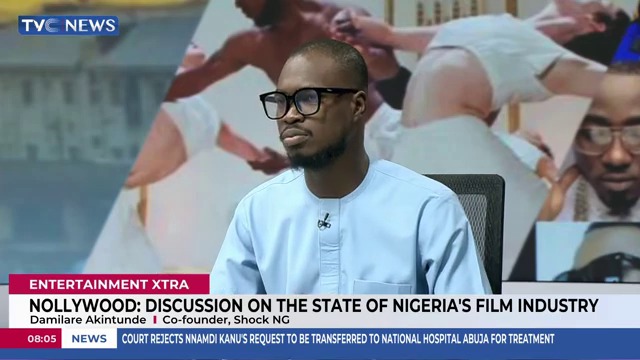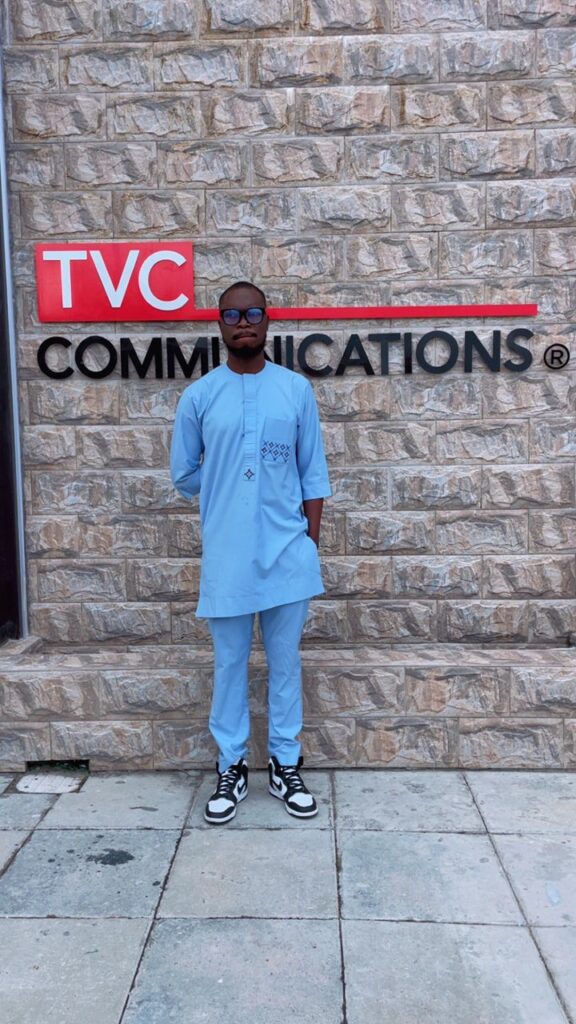The Story⚡
In a riveting appearance on TVC’s morning show, Damilare Akintunde, co-founder of Shock Africa and a seasoned film business journalist, unveiled the harsh realities facing Nollywood, delivering a no-holds-barred report card that exposes the industry’s triumphs and tribulations, from zero grades in key areas to the seismic shifts caused by global streamers and corporate takeovers.

Tell Me More
Nollywood thrives on passion and creativity but grapples with systemic hurdles like piracy, funding shortages, and crumbling infrastructure. During his TVC interview, Akintunde spotlighted the “State of Nollywood Table Talk” series as the definitive industry assessment Nollywood desperately needs. This groundbreaking series convenes 11 experts to grade the sector across five pivotal pillars: Infrastructure, Talent & Capacity Development, Funding, Distribution, and Institution & Government Support. The results? Eye-opening, with some experts assigning stark zeros, underscoring deep-seated issues.
Akintunde delved into the motivations behind the series, emphasizing the need for honest dialogue in an industry where financial viability is paramount. “If it’s not making money, it’s not making sense,” he quipped, a reality check that resonates amid Nollywood’s economic woes. One major pain point: the drastic cuts by streaming giants. Netflix, for instance, has slashed Nigerian content commissions by 75%, forcing filmmakers—especially those behind high-budget projects exceeding ₦200 million—to scramble for recoups, often seeing revenues plummet from 100% to a mere 25%.
The conversation also tackled the $2 billion takeover of MultiChoice by French media conglomerate Canal Plus, finalized in 2025. With MultiChoice reaching 40 million households across Africa, this deal sparks concerns over foreign influence on local storytelling. Will it boost investments in African narratives, as the new CEO promises, or dilute authentic voices? Akintunde weighed the pros and cons, highlighting the tension between global capital and cultural sovereignty.
Infrastructure emerged as a critical bottleneck. Nigeria boasts only 300 cinema screens for a population of over 200 million, making widespread distribution a nightmare. Skyrocketing ticket prices—now hitting ₦8,000 without popcorn—position cinemas as a luxury, alienating everyday audiences.

Akintunde pointed to innovative solutions like community cinemas, citing Fusion’s “Red Circle” project, where tickets dip as low as ₦2,000 in underserved areas. Yet, scaling these for meaningful revenue remains elusive. He questioned the readiness of production houses for big investments: If a foreign backer arrives with $1 million, are there adequate facilities with top-tier cameras, VFX teams, and editors?
Beyond infrastructure, Akintunde addressed talent development and funding gaps, where passion often outpaces professional training, and distribution challenges that limit global reach. The series also contrasts traditional filmmaking with emerging formats like skits on YouTube, urging creators to diversify monetization through festivals, streaming, and international partnerships. Despite the gloom, Akintunde remains optimistic: Nollywood’s storytellers are resilient, poised to navigate these storms and emerge stronger in the era of stream wars.
This timely discourse arrives as filmmakers battle to sustain a vibrant ecosystem. With episodes featuring insights from directors, producers, actors, and financiers, the “State of Nollywood Table Talk” isn’t just talk—it’s a call to action for reform, investment, and innovation in Africa’s cinematic heartbeat.
Watch Full Interview Here
In Summary
You can catch episodes 1-4 of State of Nollywood Industry Table Talk on Shock Africa on YouTube.
Thanks for Reading.
Shockng.com covers the big creators and players in the African film/TV industry and how they do business.
Let’s be friends on Instagram @Shockafrica



